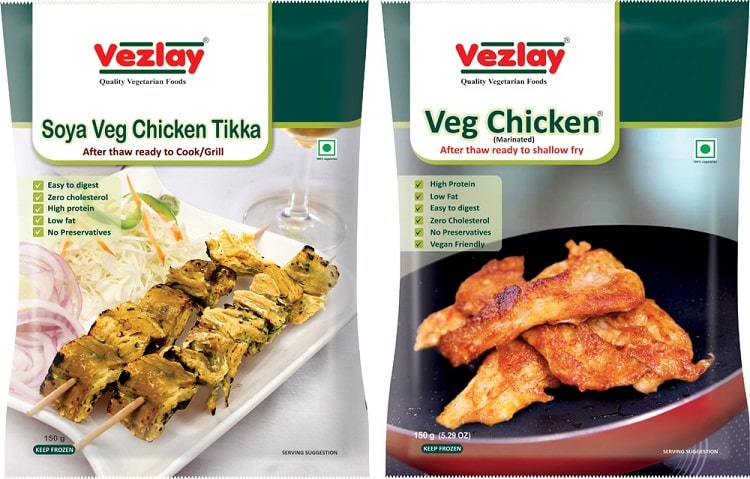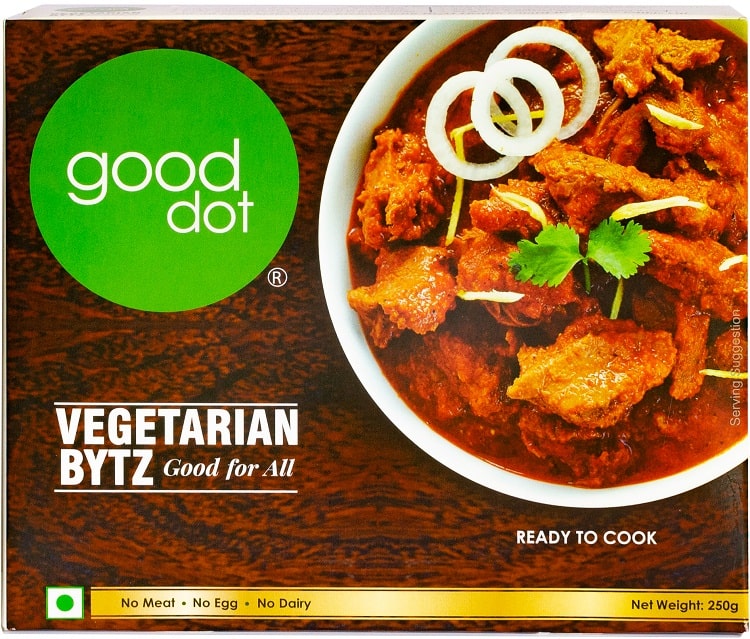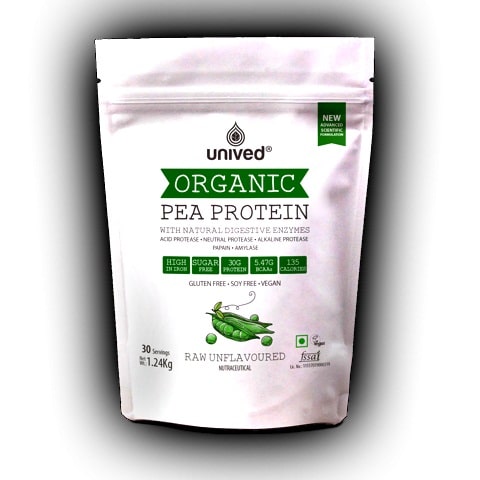- The global market share of plant-based foods is projected to reach US$10,892 million by 2022, with a CAGR of 6.7%
- Between 2012-2016, new vegetarian and vegan product launches increased by 140% and 440% respectively in Southeast Asia
- Asia-Pacific region is expected to register the highest CAGR within this segment, at 6.3% by 2025
- Research indicates Alternative Proteins or Plant-Based Proteins are significantly more beneficial, in terms of nutritional profile and environmental impact
- Consumers are increasingly gravitating towards the ‘Clean’ label and ethically produced food products
◊ By Radhika Rao
Note: To find organic food brands and organic shops in India, buy the Organic Directory
With consumers increasingly opting for sustainable, humanely produced and antibiotic free plant-based foods instead of their animal-derived counterparts, Plant-Based Foods no longer represent a niche sector.

Tandoori sausages by Ahimsa Food, which makes a range of mock meats prepared with soya and vegetables
WHY MEAT WON’T CUT IT ANYMORE
With the global population estimated to reach 10 billion by mid-century, we are left with a burdening question—how will we meet the protein needs of this world in a sustainable, healthy manner?
The traditional method of producing animal-based protein is not a viable solution for a number of reasons. The ethical and environmental challenges associated with the production and consumption of meat, dairy, and eggs have long been touted as one of the biggest threats to the planet, with respect to public health, environmental impact and animal welfare.
Animal agriculture is one of the largest contributors to greenhouse gas emissions and is extremely resource-intensive. For instance, to produce one calorie of chicken meat, 9 calories of input is required, this being the most efficient meat to produce.
As per findings of the FAO (Food & Agriculture Organization of the United Nations), the livestock sector contributes to 18% of total greenhouse gas emissions, 37% of all human-induced methane emissions, as well as, deforestation, with a staggering 30% of the Earth’s land surface used for permanent pasture.
Additionally, the consumption of meat is associated with increased risk of several long term diseases including diabetes, heart disease, cancer and stroke. The increase in consumption of meat has led to the industrialisation of animal agriculture, resulting in the spread of several zoonotic and pathogenic diseases.

Vezlay boasts a large variety of soya meats including soya chop, soya seekh kebab,and ‘veg meat’

Good Dot of Udaipur makes plant-based meats from plants and grains
Animals raised for meat, dairy and eggs are pumped with antibiotics and hormones, and as a result, when consumed by humans, cause antibiotic resistance in them—an epidemic resulting in more than 700,000 deaths per year, worldwide.
To provide our growing population with protein that is healthier, and in agreement with the UN’s Sustainable Development Goals, a paradigm shift needs to take place in our food system, away from resource-intensive, inhumane animal agriculture, and towards sustainable, new-age sources of nutrition.
PLANT-BASED PROTEINS ARE THE FUTURE
Over the past decade, significant progress has been made towards the advancement of the Alternative Proteins or Plant-Based Proteins sector, with respect to academic research, financial investment, and media engagement.
In India, several plant-based food product companies such as Good Dot, Vezlay, Unived and Ahimsa Food have come up to provide alternate protein options to consumers, and these have been well received in the market. With consumers increasingly opting for more healthy and humane food options, Plant-Based Foods no longer represent a niche sector.
Various new sources of protein are being discovered—Algae and Mycoprotein are a couple. Numerous plants are being studied as potential replacements. Extensive research has also demonstrated that these Alt Proteins are significantly more beneficial, in terms of nutritional profile and their impact on the environment.
Consumers are gravitating towards the ‘Clean’ label and ethically produced food products. They are witnessing, first hand, the benefits of plant-based eating. Driven by consumer demand, several plant-based food companies, such as JUST, Beyond Meat, Impossible Foods, and Seattle Food Tech have emerged and are revolutionising our food system and changing the narrative around consumers’ perception of protein.
Recognising the vast potential in alternative proteins, the world’s leading philanthropists, Bill Gates and Richard Branson, and even the largest players in the animal-based meat industry, including Tyson Foods and Cargill, are investing in alternative protein companies. Furthermore, established food corporations such as Nestle and Tesco are expanding their portfolios, and including diversification of protein as part of their company goals.

Mock duck by Ahimsa Food
VIABILITY OF PLANT-BASED PROTEINS MARKET
As per the market research firm, Research and Markets’ report, ‘Plant Based Protein Market – Global Opportunity Analysis and Industry Forecast 2017-2022, the global market share of plant-based foods is projected to reach US$10,892 million by 2022, with a CAGR of 6.7%.
Even in Asia, where the influences that define the consumption of meat are starkly different from the West and the movement towards alternative proteins is just beginning to gain momentum, plant-based foods are on the rise.
Between 2012 -2016, new vegetarian and vegan product launches increased by 140% and 440% respectively in Southeast Asia alone. The research firm, Persistent Market Research, in its report, Plant-Based Proteins Market: Global Industry Analysis (2012-2016) and Forecast (2017-2025), indicates the Asia-Pacific region will register the highest CAGR within this segment, at 6.3%, between 2017 and 2025.
In India, also, several plant-based food product companies such as Good Dot, Vezlay, Unived and Ahimsa Food have come up to provide alternate protein options to consumers, and these have been well received in the market. Whereas Good Dot, Vezlay and Ahimsa Food offer ranges of vegetarian meat or mock meat, Unived produces vegan supplements including those containing organic pea protein.

Unived produces vegan supplements including those containing organic pea protein

The author is Campaign Manager for Institutional Meat Reduction, Humane Society International, India



we represent among others,VEGAN certification for India,HQ, UK. We would visit the expo.Can we promote the certification jointly ?
Mr Dass, if you’re looking to advertise your services, pls send your query at [email protected]. If you want to book a booth at Vegan India Expo, kindly write to: [email protected], [email protected]
I would like to know how I can start this business in Trivandrum. Azhar Ahmad +91-7904249256
Good Article, need more information on vegan products.
Call me on 09527077902
pls call on 9810976832
I would like to join vagen group.
Good information on plant based meat, products it’s market in India and global and it’s future potential. I am master’s in Food technology and very much interested to work in this products research . Interested companies can reach to me for further r&d.
I would like to start this business in Tamil Nadu, Kindly contact 9361164044.
We recommend that you contact the respective businesses directly.